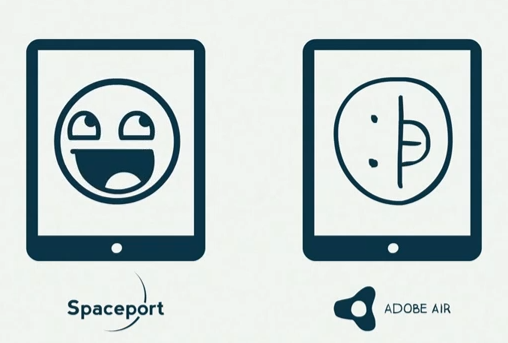Spaceport.io has just announced that part of its team, but not its technology, is moving to Facebook, and the social network has confirmed the talent deal to me. But instead of shutting down, Spaceport.io will continue to operate its Adobe Air alternative under the direction of co-founder Peter Relan and the team from his incubator YouWeb that backed Spaceport.
The Spaceport team including Ben Savage (not the actor from Boy Meets World) could help Facebook build better cross-platform mobile experience for itself and its third-party developers. Facebook tells me “Ben Savage and the Spaceport team are a talented group of mobile engineers. We look forward to building products that people love together.” Spaceport was originally founded as Sibblingz Inc by Savage and Relan within the YouWeb incubator. It raised $3 million in April 2012 from BBC Worldwide and YouWeb.

For a remarkably clear, no bull , one-minute description of what Spaceport does, check out this video. But as our writer Leena Rao put it in 2011, “Spaceport allows game developers to build a game once, using Javascript, and have it play across all smartphone operating systems, with a native app-like experience and fast performance. The games run as a hybrid HTML5 – native app, and the code for the game is written once, in a simple scripting language, so that they can then run on any device. With Spaceport, developers just need to revise the JavaScript code for their game in the HTML page once. After doing so, they will see immediate updates take place in their game across every device.”
Developers will still be able to build on the YouWeb-supported Spaceport platform. Some early users of the platform include Nickelodeon, and social game heavyweight Crowdstar, who used Spaceport to build its hit game It Girl.
So how does the Spaceport team help Facebook? The social network launched an HTML5 game platform in late 2011 but it’s gotten very little traction. Developers seem to prefer building native apps that have more access to a mobile device’s hardware and that can handle better graphics. The Spaceport team could help Facebook build out that platform so it’s suitable for serious apps.
Alternatively, the Spaceport team might aid Facebook with porting its own rich native apps to the mobile web via HTML5. Facebook famously backtracked on the mobile web standard after spending years building its iOS and Android apps on the architecture. It eventually realized HTML5 made the apps run too slowly, so it rebuilt them 100% native. Spaceport could allow the Facebook mobile team port its native apps to HTML5 so all the code doesn’t have to be rewritten. That could let Facebook continue shipping mobile products quickly so it doesn’t get picked apart by more nimble, mobile-first startups.

